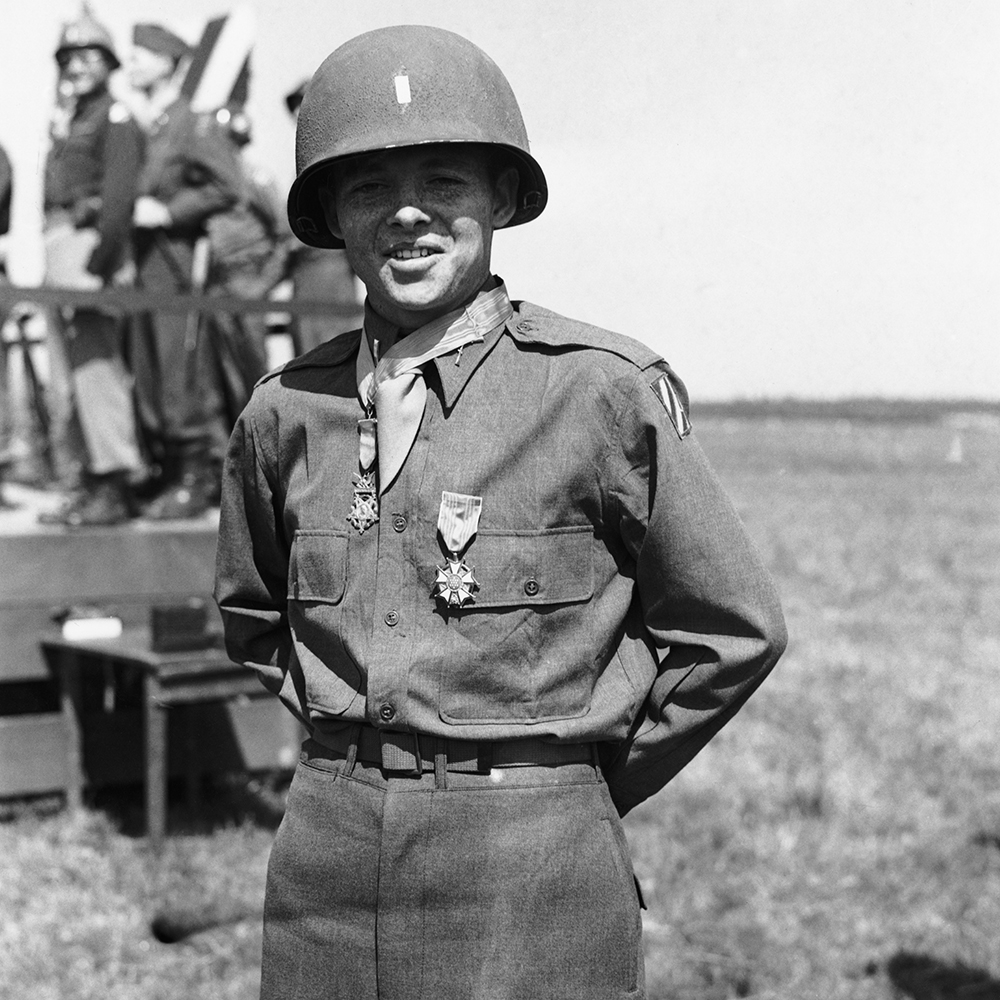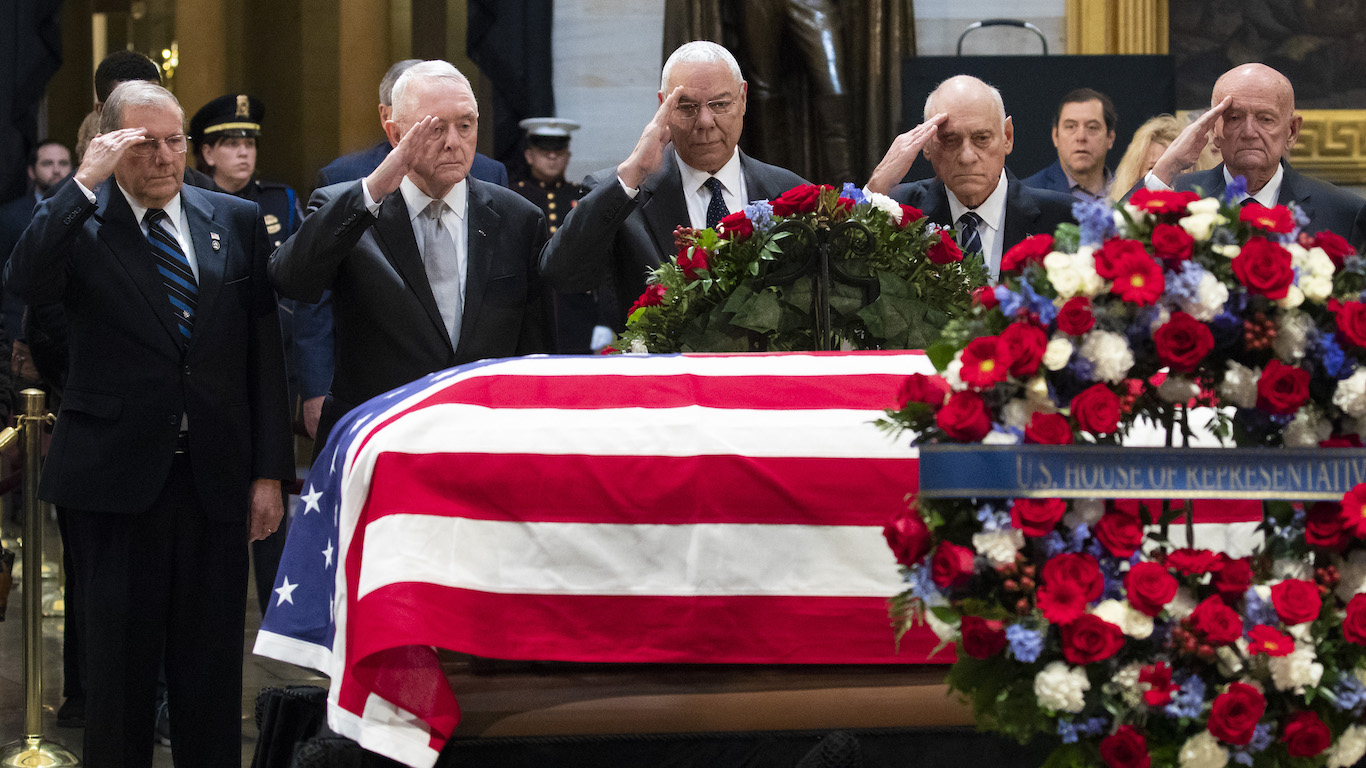

In March 2019, Jimmy Carter became the longest-living former president in U.S. history. Carter, who is now 96, passed President George H.W. Bush, who, at the time of his death, was the longest living former president. Bush lived to be 94 years and 171 days old.
While many former American presidents led long lives after completing their term, most did not live well into their 90s, and some died not more than a few years after leaving office. Some, of course, even died in the White House. 24/7 Tempo researched the age and cause of death of every U.S. president who has passed away.
The highest office in America may also be one of the most dangerous. Eight out of 44 presidents died in office. Four of those presidents — Abraham Lincoln, James A. Garfield, William McKinley, and John F. Kennedy — were assassinated. At least one assassination attempt has been documented during every presidency since that of Lyndon B. Johnson. Here are the most famous failed assassinations.
The normal proceedings of the presidency may also take a toll on health. The presidency is a high-stress job, and many have left the office with significant health issues. James K. Polk, Chester A. Arthur, and Woodrow Wilson decided against running for an additional term either to escape the stresses of the presidency or because of poor health.
Jimmy Carter is the longest-living former president. The president with the shortest life was John F. Kennedy, who was 46 years and 177 days at the time of his assassination. These are the 37 most famous assassinations in American history.
Click here for the presidents who lived the longest (and shortest) lives
1. George Washington
> Age at time of death: 67 years
> Date of death: December 14, 1799
> Cause of death: Pneumonia
> Place of death: Mount Vernon, Virginia
George Washington was born on February 22, 1732. Relative to the average lifespan of males born in the 18th century, Washington lived a fairly long life. America’s first commander in chief survived numerous battles as well as a brush with smallpox. After ending his two terms as the country’s first president, Washington retired to his estate in Mount Vernon, Virginia. His retirement lasted about two years, until he passed away from pneumonia.
2. John Adams
> Age at time of death: 90 years
> Date of death: July 4, 1826
> Cause of death: Heart failure
> Place of death: Quincy, Massachusetts
John Adams died of heart failure on July 4, 1826 — the 50th anniversary of the signing of the Declaration of Independence. According to some historians, Adams muttered, “Thomas Jefferson survives,” moments before his death. Unbeknownst to Adams, however, Jefferson had died about six hours earlier. Adams enjoyed one of the longest periods of retirement of any president, living for more than 25 years after the end of his term.
3. Thomas Jefferson
> Age at time of death: 83 years
> Date of death: July 4, 1826
> Cause of death: Diarrhea
> Place of death: Charlottesville, Virginia
Thomas Jefferson also died on July 4, 1826, a few hours before John Adams. Jefferson and Adams were political rivals, but later exchanged numerous letters that are now one of the most studied political correspondences in the nation’s history. Jefferson’s health began to decline around 1818, eight years before he ultimately passed away at Monticello, his estate.
4. James Madison
> Age at time of death: 85 years
> Date of death: June 28, 1836
> Cause of death: Heart failure
> Place of death: Orange, Virginia
After finishing his two terms as America’s fourth president, James Madison retired to Montpelier, his Virginia estate. Madison lived there for about 19 years until his death, supervising the plantation. Madison’s health began to decline when he developed chronic rheumatism and suffered from liver dysfunction. He passed away one morning during breakfast on June 28, 1836. At the time of his death, Madison was 85 years old.
5. James Monroe
> Age at time of death: 73 years
> Date of death: July 4, 1831
> Cause of death: Tuberculosis
> Place of death: New York City
James Monroe accumulated considerable debt during his time in public office and spent much of his retirement attempting to reach financial solvency. He accepted a position at the University of Virginia, worked on various books that would never reach publication, and requested compensation from the federal government. Monroe moved to New York City in 1830, where he lived until his death the following year. Like Thomas Jefferson and John Adams, Monroe died on July 4, Independence Day. Monroe was the last of the founding fathers to be president.
6. John Quincy Adams
> Age at time of death: 80 years
> Date of death: February 23, 1848
> Cause of death: Stroke
> Place of death: Washington, D.C.
Two years after an electoral defeat to Andrew Jackson that ended his time as president, John Quincy Adams began his congressional career. Adams had retired to his hometown of Quincy, Massachusetts, but was bored by the lack of political engagement. Against his family’s wishes, Adams ran for Congress and went on to serve nine terms as a Massachusetts representative. In February 1848, Adams suffered a stroke on the House floor and died two days later. A funeral for Adams was held in the House Chamber. He was 80 years old at the time of his death.
7. Andrew Jackson
> Age at time of death: 78 years
> Date of death: June 8, 1845
> Cause of death: Tuberculosis
> Place of death: Nashville, Tennessee
In his 78 years, Andrew Jackson survived an assassination attempt, was shot in a duel, and had multiple brushes with death due to various illnesses. According to presidential research institute The Miller Center, Jackson’s frequent near-death experiences led many of his friends to question the former president’s mortality. On June 8, 1845, Jackson eventually died of health complications from tuberculosis. Some historians believe that lead poisoning from the bullet Jackson was shot with — which was never removed from his body — may have contributed to his death.
8. Martin Van Buren
> Age at time of death: 79 years
> Date of death: July 24, 1862
> Cause of death: Asthma
> Place of death: Kinderhook, New York
After failing to secure a second presidential term in 1844 and again in 1848, Martin Van Buren retired to an estate he had recently purchased, some two miles from his hometown of Kinderhook, New York. He spent much of his retirement writing memoirs, a political text, and traveling. Van Buren was bedridden from pneumonia in the fall of 1861, and perhaps never fully recovered. He eventually died of asthma on July 24, 1862. Van Buren lived long enough to see the beginnings of the Civil War, which he strongly opposed.
9. William Henry Harrison
> Age at time of death: 68 years
> Date of death: April 4, 1841
> Cause of death: Pneumonia
> Place of death: Washington, D.C.
William Henry Harrison holds the record for the shortest tenure of any U.S. president. Harrison died on April 4, 1841, just one month after his inauguration. Harrison gave his lengthy inauguration address on a chilly, wet day, and contracted a cold that eventually developed into the pneumonia that claimed his life. Harrison was the first president to die in office. By assuming the presidency, Vice President John Tyler set the precedent for succession now documented in the Constitution. At the time however, how a dead president should be replaced was unclear.
10. John Tyler
> Age at time of death: 71 years
> Date of death: January 18, 1862
> Cause of death: Stroke
> Place of death: Richmond, Virginia
After assuming the presidency in the aftermath of William Henry Harrison’s death and serving nearly a full term as president, John Tyler lost the 1844 election to James K. Polk. Tyler clashed with Congress frequently throughout his presidency, and his term ended with the first ever congressional override of a presidential veto on a bill. Bitter, Tyler left Washington, D.C. for his Virginia plantation just hours after Polk’s inauguration. When the first southern states began to secede at the start of the Civil War, Tyler led a failed effort to diffuse the conflict and eventually sided with the Confederacy. Tyler was no longer a U.S. citizen when he died of a stroke in January 1862, and was considered by many Americans to be a traitor to the Union. Many years later, his citizenship was posthumously restored by President Jimmy Carter.
11. James K. Polk
> Age at time of death: 53 years
> Date of death: June 15, 1849
> Cause of death: Cholera
> Place of death: Nashville, Tennessee
After serving one term as America’s 11th president, James K. Polk decided not to seek reelection. Historians believe the stress of the presidency detracted from Polk’s health, and the former president was eager to begin a long retirement at his newly purchased Polk Place estate in Nashville, Tennessee. Polk’s retirement, however, lasted just three months, the shortest of any president. While on a tour of the American South, Polk contracted cholera, which ultimately proved fatal. Polk passed away at the age of 53, the shortest life of any president who was not assassinated.
12. Zachary Taylor
> Age at time of death: 65 years
> Date of death: July 9, 1850
> Cause of death: Gastroenteritis
> Place of death: Washington, D.C.
About 16 months into his presidency, Zachary Taylor developed a deadly stomach ailment that was at the time diagnosed as cholera morbus, and later as gastroenteritis in a later examination. Most historians believe Taylor contracted the illness by consuming bad cherries and milk, and some believe he was intentionally poisoned by citizens who opposed his anti-slavery politics. Some historians believe that had Taylor lived, his strong opposition to slavery may have slowed the unification of the South and inhibited some of the events that ultimately led to the Civil War. Taylor was the second president to ever die in office.
13. Millard Fillmore
> Age at time of death: 74 years
> Date of death: March 8, 1874
> Cause of death: Stroke
> Place of death: Buffalo, New York
Millard Fillmore assumed the presidency after the unexpected death of Zachary Taylor. After the partial term as president, Millard Fillmore and his family were happy to leave Washington, D.C. Both his wife and daughter died in the year that followed, however, and he embarked on a 15-month tour of Europe. Fillmore returned to Buffalo, where he continued to involve himself in both national and local politics. He eventually died of a stroke on March 8, 1874, at the age of 74.
14. Franklin Pierce
> Age at time of death: 64 years
> Date of death: October 8, 1869
> Cause of death: Cirrhosis
> Place of death: Concord, New Hampshire
Franklin Pierce and his wife suffered the death of their son shortly before his inauguration, and the consequent mourning kept the social life at the White House to a minimum during the Pierce Presidency. After finishing his one term, Pierce and his wife retired to New Hampshire, where they continued to live a fairly reclusive lifestyle. Pierce had drank heavily throughout his life, and continued to consume large amounts of alcohol in his retirement. Likely as a result, the former president developed fatal cirrhosis of the liver. He passed away on October 8, 1869, at 64 years of age.
15. James Buchanan
> Age at time of death: 77 years
> Date of death: June 1, 1868
> Cause of death: Respiratory failure
> Place of death: Lancaster, Pennsylvania
Blamed by many for the Civil War, James Buchanan spent much of his retirement defending himself against such charges. Buchanan moved to his Wheatland estate in Lancaster, Pennsylvania, where he stayed largely removed from public life. He eventually died of respiratory failure on June 1, 1868. He was 77 years old at the time of death.
16. Abraham Lincoln
> Age at time of death: 56 years
> Date of death: April 15, 1865
> Cause of death: Gunshot wound
> Place of death: Washington, D.C.
On April 14, 1865, President Abraham Lincoln sat watching a comedic play at Ford’s Theater in Washington, D.C, in a presidential box in the balcony. He was shot in his seat by the actor John Wilkes Booth and died the following day. Six days earlier, the Confederacy had surrendered to the Union, marking the end of the Civil War. Lincoln presided over the end of the war and for many Americans, his death overshadowed the celebration of the Union victory. Lincoln’s coffin was processioned around the country by train for two weeks until it reached its final resting place in Springfield, Illinois.
17. Andrew Johnson
> Age at time of death: 66 years
> Date of death: July 31, 1875
> Cause of death: Stroke
> Place of death: Carter’s Station, Tennessee
After being impeached from office in his first term as president, Andrew Johnson tried unsuccessfully to remain in politics. He lost his election bid in the 1868 presidential race, and after moving to Tennessee, he lost both the 1869 U.S. Senate race and the 1872 race for a seat in the U.S. House of Representatives. Johnson was eventually elected to the Senate in January 1875, becoming the only U.S. president to ever hold a Senate seat after serving as president. Johnson did not serve long, however, as he died of a stroke on July 31, 1875. He was 66 years old at his death.
18. Ulysses S. Grant
> Age at time of death: 63 years
> Date of death: July 23, 1885
> Cause of death: Throat cancer
> Place of death: Wilton, New York
After finishing his two terms as America’s 18th president, Ulysses S. Grant and his wife embarked on a two-and-a-half year journey around the world. Five years after his return, Grant was diagnosed with throat cancer and suffered a financial disaster that left him and his family penniless. Determined to leave a suitable inheritance behind for his wife and children, Grant secured a deal with Mark Twain’s publishing company later that year for his personal memoirs. He finished “The Personal Memoirs of Ulysses S. Grant” on July 18, 1885, just five days before his death. The former president was buried in what remains today the largest tomb in North America.
19. Rutherford B. Hayes
> Age at time of death: 70 years
> Date of death: January 17, 1893
> Cause of death: Heart disease
> Place of death: Fremont, Ohio
Like many U.S. presidents before him and many others to come, Rutherford B. Hayes risked his life serving in the military. While fighting to preserve the Union, Hayes was nominated by his party in his home state of Ohio for the U.S. Congress. He won his congressional seat and served in the legislature after the war ended in 1865. More than a decade later, after a famously contested primary and general election, Hayes served as the 19th president of the United States. After serving a single term as a matter of choice, Hayes left the White House in 1881. Hayes died of heart failure at his estate in Fremont, Ohio at age 70.
20. James A. Garfield
> Age at time of death: 49 years
> Date of death: September 19, 1881
> Cause of death: Bronchopneumonia
> Place of death: Elberon, New Jersey
James A. Garfield was an effective leader in the Civil War. In 1862, the same year he led a brigade in Middle Creek, Kentucky, routing the Confederate opposition, he was elected to Congress in his home state of Ohio. Despite his prowess as a military leader, then-President Lincoln convinced him to leave his post on the battlefield in order to focus entirely on his congressional duties. After serving in Congress for nearly two decades, Garfield defeated Democratic opponent General Winfield Scott in a bid for president. On July 2, 1881, only months after taking the oath of office, Garfield was shot by an attorney, reportedly bitter at being denied a political appointment. Garfield died three months later from ensuing complications. At the time of his death, he was 49 years old, younger than any president that had died before him.
21. Chester A. Arthur
> Age at time of death: 57 years
> Date of death: November 18, 1886
> Cause of death: Stroke
> Place of death: New York City
Inheriting the presidency after Garfield’s assassination and serving only one term, Chester A. Arthur was never directly voted into the White House. Though he never made it public, Arthur suffered from a kidney disease throughout his term. His poor health reportedly kept him from seeking a second term. Less than one year after he left office, Arthur died of a stroke in New York City at age 57. Including those who were assassinated, Arthur is the fifth shortest lived president in U.S. history.
22, 24. Grover Cleveland
> Age at time of death: 71 years
> Date of death: June 24, 1908
> Cause of death: Heart attack
> Place of death: Princeton, New Jersey
Though several other presidents of the era risked their lives fighting for the Union in the Civil War before assuming office, Grover Cleveland was not one of them. In fact, when a draft was instituted in 1863, Cleveland paid an immigrant to serve in his stead. Despite not serving in the military, Cleveland made a career out of public service. Starting in local politics, Cleveland served as sheriff of Erie County, New York, then as mayor of Buffalo, and then as Governor of New York. Cleveland served twice as president, once in 1885 and again in 1893. To date, he is the only U.S. president in history to have served two non-consecutive terms in office. After his second term, Cleveland retired to Princeton, New Jersey, where he died of a heart attack a decade later.
23. Benjamin Harrison
> Age at time of death: 67 years
> Date of death: March 13, 1901
> Cause of death: Pneumonia
> Place of death: Indianapolis, Indiana
Elected 100 years after George Washington, Benjamin Harrison was the grandson of former President William Henry Harrison. Harrison continued to enjoy a public role after his presidency, delivering speeches and lectures around the country. Harrison eventually died of pneumonia in his Indianapolis, Indiana home on March 13, 1901. The former president was 67 years old at his time of death.
25. William McKinley
> Age at time of death: 58 years
> Date of death: September 14, 1901
> Cause of death: Gangrene
> Place of death: Buffalo, New York
On September 14, 1901, William Mckinley became the third president to die from an assassination. Six months into his second term, on September 6, McKinley was shot while greeting the public at the Pan-American Exposition in Buffalo, New York. While McKinley’s doctors predicted the president would recover from the attack, his bullet wounds soon became infected with gangrene, and he died eight days later. The assassin, Leon F. Czolgosz, was a self-proclaimed anarchist who believed McKinley to be an “enemy of the good people.”
26. Theodore Roosevelt
> Age at time of death: 60 years
> Date of death: January 6, 1919
> Cause of death: Inflammatory rheumatism
> Place of death: Oyster Bay, New York
After losing his bid for reelection to a third term in 1912, Theodore Roosevelt embarked on an expedition to explore the uncharted River of Doubt — now renamed Roosevelt River — in the Amazon region of Brazil. Encountering treacherous rapids, food shortages, malaria, violent natives, and an internal hostility that led to a murder within his party’s own ranks, Roosevelt almost lost his life on the journey. He eventually returned to the United States and public life. He died in his sleep in his Oyster Bay, New York home on January 6, 1919 of a pulmonary embolism caused by inflammatory rheumatism. The former president was 60 years old at the time of his death.
27. William Howard Taft
> Age at time of death: 72 years
> Date of death: March 8, 1930
> Cause of death: Heart disease
> Place of death: Washington, D.C.
Eight years after his one term presidency, William Taft was appointed to the Supreme Court by President Warren G. Harding. Taft is the only president to have ever served on the Supreme Court. He served as chief justice for about nine years until his death on March 8, 1930. Taft died from heart disease, high blood pressure, and inflammation of the bladder. He was 72 years old at the time of his death.
28. Woodrow Wilson
> Age at time of death: 67 years
> Date of death: February 3, 1924
> Cause of death: Stroke
> Place of death: Washington, D.C.
Woodrow Wilson’s health began to deteriorate halfway into his second term, when he suffered a series of strokes in 1919. He finished his presidency in poor health, which by some accounts affected his ability to lead. Wilson’s poor health lasted until his death on February 3, 1924. Wilson’s health issues were one reason behind the 25th amendment, which makes provisions for dealing with presidents who become incapacitated while in office. Wilson was 67 years old at his time of death.
29. Warren G. Harding
> Age at time of death: 57 years
> Date of death: August 2, 1923
> Cause of death: Heart attack
> Place of death: San Francisco, California
On August 2, 1923, about two years into his first presidential term, Warren G. Harding became the sixth president to die in office. Harding died quietly and unexpectedly in San Francisco while on a West Coast speaking tour after suffering a heart attack in his sleep. Various rumors of wrongdoing circulated at the time, including that he was poisoned by his wife. That rumor was soon debunked, however. Today, historians believe Harding died of natural causes. Harding was 57 years old at the time of his death.
30. Calvin Coolidge
> Age at time of death: 60 years
> Date of death: January 5, 1933
> Cause of death: Heart failure
> Place of death: Northampton, Massachusetts
Despite his high likelihood of winning a third term, Calvin Coolidge chose not to run for reelection in 1928. By his own account, Coolidge was honoring the unwritten custom of two-term presidencies and was ready for retirement. He retired to Northampton, Massachusetts, where he wrote his autobiography and a syndicated newspaper column. He eventually died of heart failure on January 5, 1933 in his Northampton home. The former president was 60 years old at the time of his death.
31. Herbert Hoover
> Age at time of death: 90 years
> Date of death: October 20, 1964
> Cause of death: Colon cancer
> Place of death: New York City
After his one term presidency, Herbert Hoover retired to his home in Palo Alto, California. He lived another 32 years after his presidency, the second longest retirement of any president to date after Jimmy Carter. While initially absent from party politics at the beginning of his retirement after he was blamed for the Great Depression, Hoover eventually returned to public life around World War II when President Franklin D. Roosevelt appointed him to chair an international relief organization. He remained influential until his death on October 20, 1964. At 90 years, Hoover had one of the longest lives of any president.
32. Franklin D. Roosevelt
> Age at time of death: 63 years
> Date of death: April 12, 1945
> Cause of death: Cerebral hemorrhage
> Place of death: Warm Springs, Georgia
Franklin D. Roosevelt holds the record for longest tenure as president, serving three terms and winning reelection to a fourth. He died of a cerebral hemorrhage while sitting for a portrait on a retreat in Warm Springs, Georgia, on April 12, 1945 — less than three months into his fourth term. According to some historians, the stresses of World War II and the 1944 reelection campaign had taken a toll on the former president’s health. Roosevelt’s body was carried by train from Georgia to his New York burial place on a route lined by hundreds of thousands of mourning Americans. Roosevelt was 63 years old at the time of his death.
33. Harry S. Truman
> Age at time of death: 88 years
> Date of death: December 26, 1972
> Cause of death: Heart failure
> Place of death: Kansas City, Missouri
After his presidency, Harry S. Truman and his wife Bess Truman returned to his hometown of Independence, Missouri. He enjoyed a long retirement of 19 years, during which he wrote memoirs, constructed a presidential library, and remained influential in American political life. He eventually died on December 26, 1972 at the Kansas City Research Hospital. The former president was 88 years old at his time of death.
34. Dwight D. Eisenhower
> Age at time of death: 78 years
> Date of death: March 28, 1969
> Cause of death: Heart failure
> Place of death: Washington, D.C.
After his two terms as America’s 34th president, Dwight D. Eisenhower retired to a farm on the border of the Gettysburg Civil War battlefield in Pennsylvania. The former president remained involved in American political life, occasionally advising presidents John F. Kennedy and Lyndon B. Johnson. He and his wife Mamie Eisenhower also traveled extensively. Eisenhower’s health began to deteriorate in 1968, and he passed away on March 28, 1969 in the Walter Reed Army Medical Center in Washington, D.C. Eisenhower was 78 years old at the time of his death.
35. John F. Kennedy
> Age at time of death: 46 years
> Date of death: November 22, 1963
> Cause of death: Gunshot wound
> Place of death: Dallas, Texas
On November 22, 1963, while riding in a motorcade in Dallas, Texas, John F. Kennedy was shot and killed by assassin Lee Harvey Oswald. He was about three years into his presidency. The lack of a clear motive for the killing as well as the subsequent assassination of Oswald by Jack Ruby inspired a number of conspiracy theories concerning the Kennedy assassination. However, a commission established to investigate the assassination concluded that Oswald had been the sole party involved. At 43 years old, Kennedy was the youngest person ever to be elected president. And at 46 years, he was the youngest U.S. president to die.
36. Lyndon B. Johnson
> Age at time of death: 64 years
> Date of death: January 22, 1973
> Cause of death: Heart attack
> Place of death: Johnson City, Texas
After his two terms as America’s 36th president, Lyndon B. Johnson retired to his Texas ranch. There he worked on his memoirs and the construction of his presidential library. After suffering a heart attack in his home on January 22, 1973, Johnson was airlifted to the Brooke Army Medical Center in San Antonio, where he was pronounced dead on arrival. The former president had been in poor health for many years, with heart complications dating back to 1955. Johnson was 64 years old at the time of his death.
37. Richard Nixon
> Age at time of death: 81 years
> Date of death: April 22, 1994
> Cause of death: Stroke
> Place of death: New York City
Facing likely impeachment due to his involvement in the Watergate scandal, Nixon resigned from office on the evening of August 8, 1974. Disgraced, he and his wife Pat Nixon moved to their home in San Clemente, California. Nixon spent much of 1974 in the hospital due to complications from a blood clot removal. He was also hurting financially from having to defend himself from the numerous lawsuits filed against him due to the Watergate scandal. He gradually returned to public life and prominence through a series of memoirs and speeches. Nixon and his wife moved to New York City in 1980, where he died of a stroke 14 years later. Nixon was 81 years old at his time of death.
38. Gerald Ford
> Age at time of death: 93 years
> Date of death: December 26, 2006
> Cause of death: Heart failure
> Place of death: Rancho Mirage, California
Inheriting the presidency from Richard Nixon, the first president in history to resign, and losing to Jimmy Carter as an incumbent candidate, Gerald Ford is one of a small group of American presidents to never be directly elected to office. Like many presidents before him, Ford was a veteran. Awarded for distinguished service, Ford was stationed in the Pacific on a naval aircraft carrier during World War II. Before assuming the highest office in the land, Ford was also a popular congressman, serving his district in Michigan for 25 years.
40. Ronald Reagan
> Age at time of death: 93 years
> Date of death: June 5, 2004
> Cause of death: Alzheimer’s disease, pneumonia
> Place of death: Los Angeles, California
The most recent president to pass away, Ronald Reagan died on June 5, 2004 due to complications from Alzheimer’s disease. Reagan had been largely absent from public life since late 1994, when he had addressed a letter to the nation stating that he was afflicted with the disease. Prior to his struggle with Alzheimer’s, Reagan spent his retirement in his Los Angeles estate working on his memoirs and the construction of his presidential library. Reagan was 93 years old at the time of his death. He enjoyed the longest lifespan of any president other than Gerald Ford, who outlived him by 45 days.
41. George H.W. Bush
> Age at time of death: 94 years
> Date of death: November 30, 2018
> Cause of death: Not released
> Place of death: Houston, TX
The most recent president to pass away, George H.W. Bush died away at his home in Texas. While the official cause of death has not been released, Bush suffered from the effects of vascular parkinsonism, a disease similar to Parkinson’s disease caused by strokes, and was bound to a wheelchair at the end of his life. At the time of his death, Bush was the longest-lived president, at 94.
Sponsored: Want to Retire Early? Here’s a Great First Step
Want retirement to come a few years earlier than you’d planned? Or are you ready to retire now, but want an extra set of eyes on your finances?
Now you can speak with up to 3 financial experts in your area for FREE. By simply clicking here you can begin to match with financial professionals who can help you build your plan to retire early. And the best part? The first conversation with them is free.
Click here to match with up to 3 financial pros who would be excited to help you make financial decisions.
Thank you for reading! Have some feedback for us?
Contact the 24/7 Wall St. editorial team.
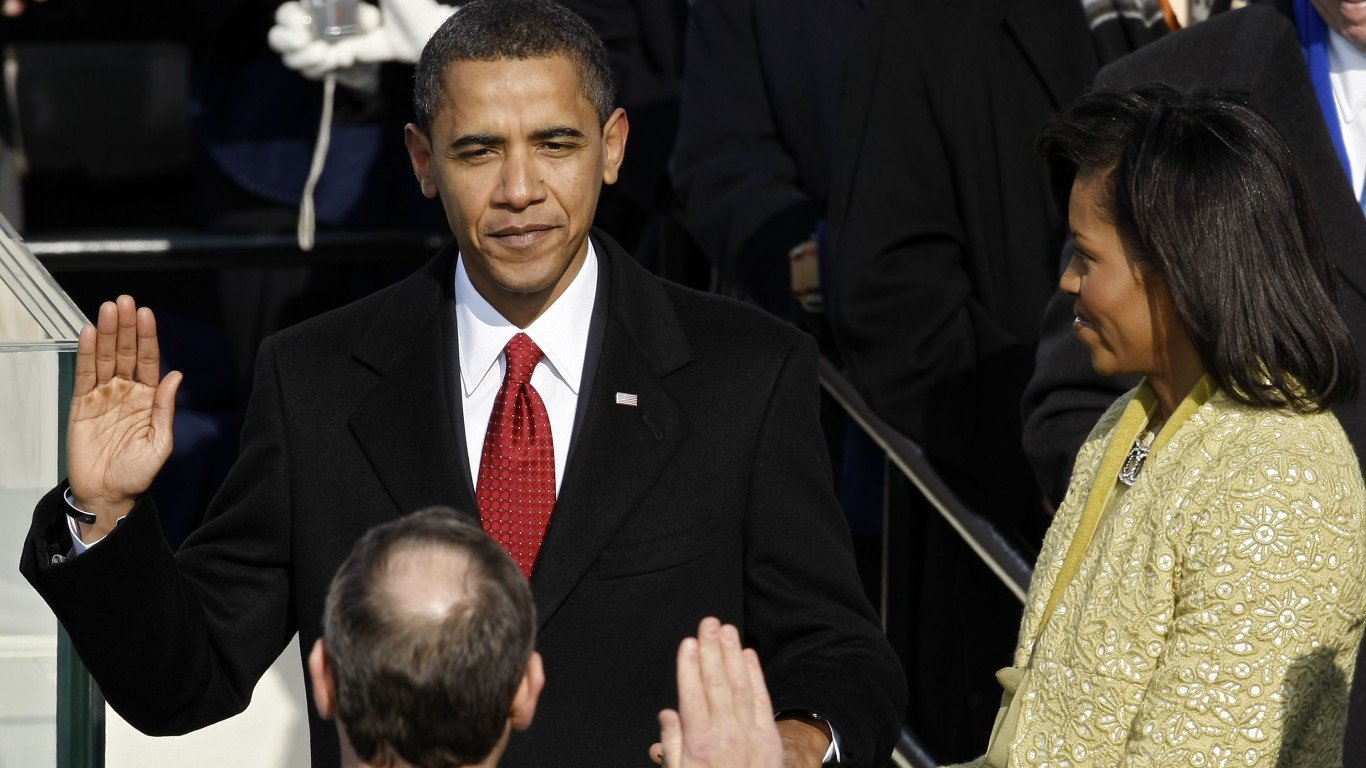 24/7 Wall St.
24/7 Wall St.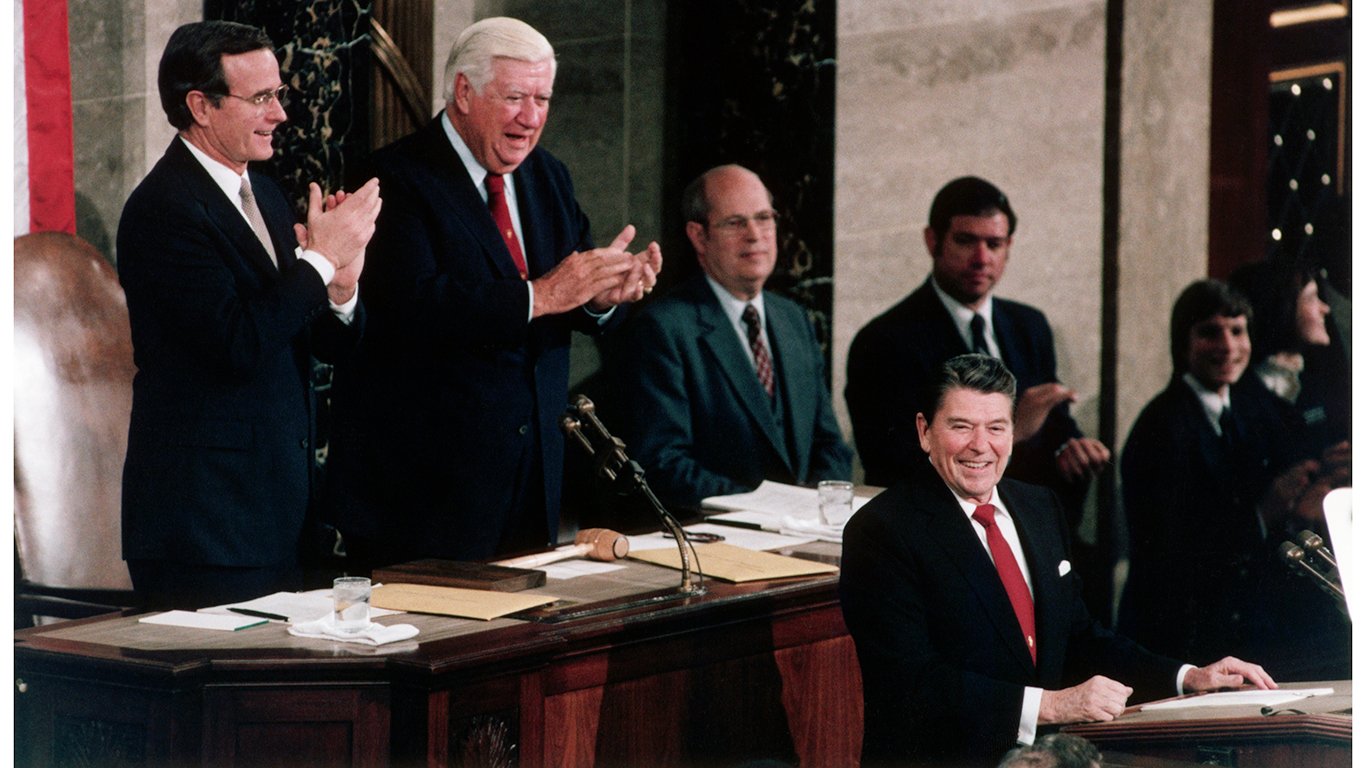 24/7 Wall St.
24/7 Wall St.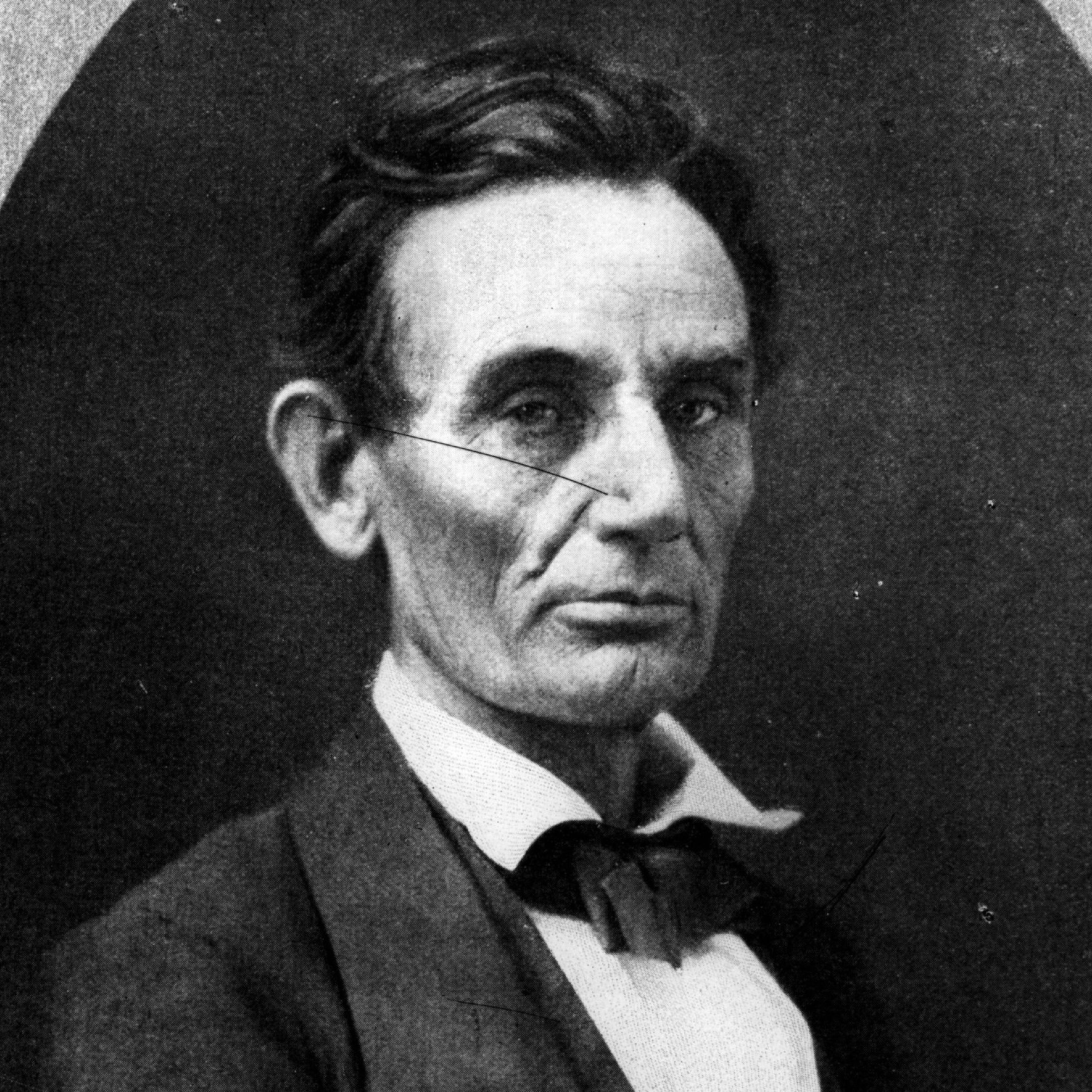 24/7 Wall St.
24/7 Wall St. 24/7 Wall St.
24/7 Wall St.

